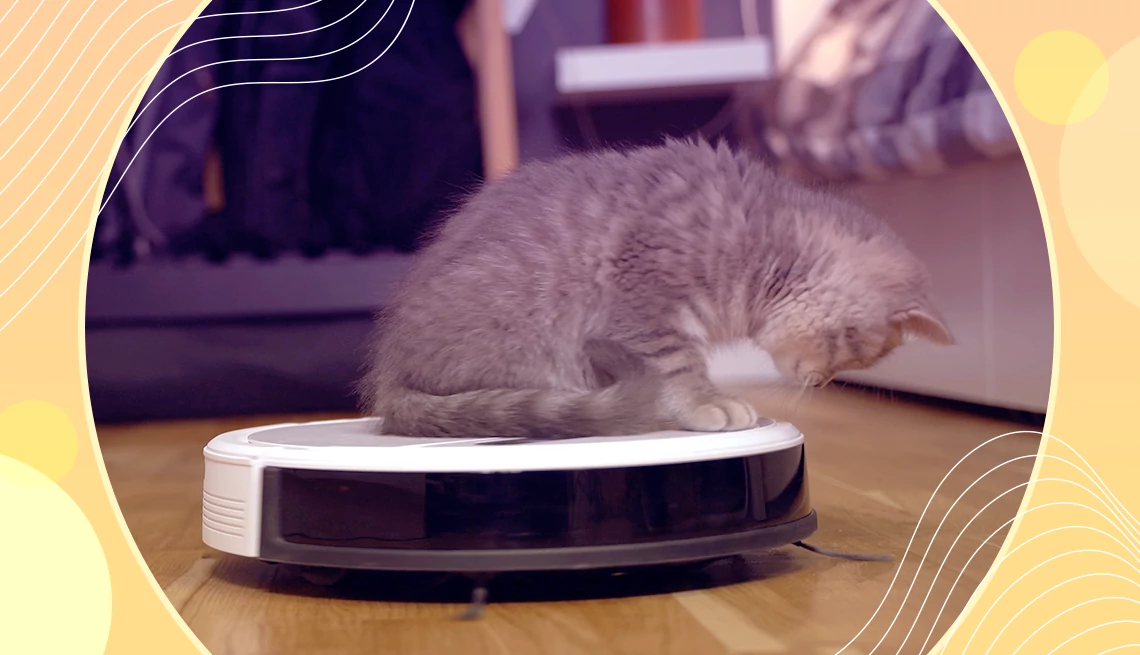
- Select a language for the TTS:
- UK English Female
- UK English Male
- US English Female
- US English Male
- Australian Female
- Australian Male
- Language selected: (auto detect) - EN
Play all audios:
SO WHAT FEATURES DO YOU REALLY NEED? HERE ARE SOME OPTIONS SUCTION POWER. The drawing power of vacuums is listed in pa, which stands for Pascal pressure units. Inexpensive, vacuum-only
models may have a rating of 3,000 pa, which is adequate for a small apartment with hardwood floors, low-pile carpets, and no pets. For higher traffic homes, more expensive models are rated
for over 10,000 pa, such as the Roborock Qrevo Curv (18,500 pa) and the Narwal Narwal Freo Z Ultra (12,000 pa). SELF-EMPTYING. Machines with larger base stations often include an automatic
emptying feature that pumps the dirt out of the vacuum and into a larger bag in the base, so you (or a caregiver) can go weeks without touching the vacuum. And they can do the same with the
dirty water collected from mopping. WET MOP. High-end models not only vacuum but can also mop tile and wood floors. That's key if you have different types of flooring in your home.
These clean machines can tell the difference between carpet and hardwood or tile floors, and then automatically switch between vacuuming the living room and damp mopping the kitchen floor.
It means the end of lifting heavy water buckets and mops. PET ACCIDENT AVOIDANCE. According to a 2024 survey by the American Pet Products Association, 51% of all pet owners are either Gen
Xers or Baby Boomers. And as we know, pets have ... accidents. Many robovac models use AI to identify and steer around Rover's bathroom mistakes. It's an important feature, because
the last thing you want is for the vacuum to spread doggie doo doo around the house. SOUND RATING. While not nearly as loud as the old canister vacuums we grew up with, robovacs still make
noise. So having a quiet model can be important if it’s running around while you're home doing other things. The Narwal Freo Ultra, for example, is one of the quietest at just 53
decibals in basic cleaning mode, which is quieter than a normal spoken conversation. LIVE VIDEO. Some robovacs use video cameras to assist with mapping and obstacle avoidance; those same
cameras can also be accessed in some cases live over the Internet from a smart phone as an additional security feature — great if you're out or at work. Both Roborock and Narwal offer
this feature, for example, with audible warnings to anyone at home that the camera is on. Some models intentionally don't include this feature to allay any privacy concerns. VOICE
COMMANDS. As with most gadgets these days, the majority of robovacs can be connected to a Google Assistant or Amazon Alexa account to work with a handful of spoken commands. ome models go a
step further and respond on their own to a set of pre-programmed commands, such as, "Rocky, clean the kitchen." So you literally don't have to lift a finger. BATTERY LIFE.
Unlike mobile devices like smart phones, robotic vacuums spend most of their lives plugged into a base station. And since they will return to their stations automatically if they sense they
are running out of power, how long they will last on a single charge isn't that critical. That being said, most models will run for between one and two hours before scurrying back to
their chargers.







